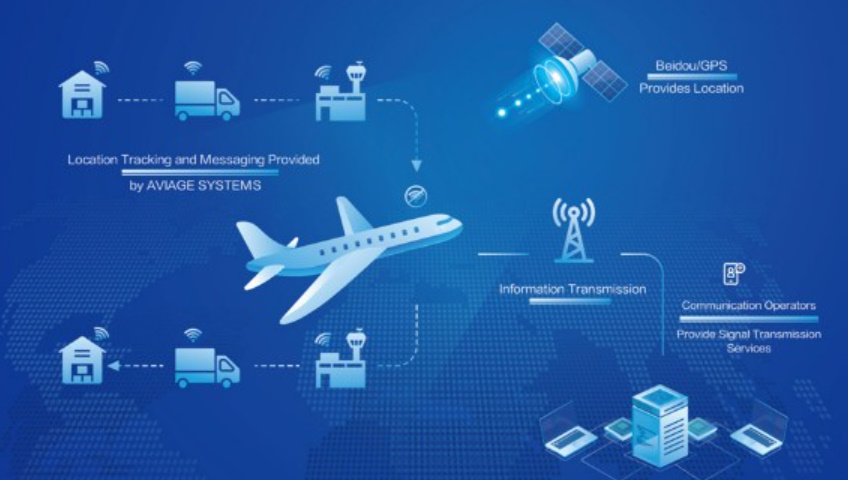Introduction to International Cargo Tracking
International cargo tracking has become a cornerstone of modern global trade. As businesses increasingly rely on cross-border shipments, the ability to monitor goods in real-time provides immense value. From ensuring the security of high-value items to meeting customer expectations, cargo tracking helps maintain the integrity and efficiency of the supply chain.
Understanding the Basics of International Cargo Tracking
At its core, international cargo tracking involves the monitoring and reporting of the location and condition of goods as they move through the global supply chain. Different tracking methods are utilized depending on the mode of transport—sea, air, or land. These methods can include GPS tracking for land shipments, RFID tags for containerized sea freight, and specialized tracking systems for air cargo.
How International Cargo Tracking Works
International cargo tracking relies on several key technologies. GPS systems are widely used to provide real-time location data, while RFID tags help track the movement of goods through various checkpoints. The Internet of Things (IoT) integrates these technologies, allowing for continuous data collection and transmission, which can be monitored through centralized software platforms.
Step-by-Step Process of Cargo Tracking:
- Initialization: Cargo is tagged with a tracking device or RFID.
- Data Collection: As the cargo moves, data is collected and transmitted via GPS, RFID, or IoT devices.
- Real-Time Monitoring: Logistics teams monitor the cargo’s journey, receiving updates on its location and condition.
- Data Analysis: The collected data is analyzed to ensure timely delivery and address any potential issues.
- Delivery Confirmation: The final destination is recorded, and the tracking process concludes.
Key Components of an International Cargo Tracking System
An effective cargo tracking system consists of several vital components:
- Tracking Devices: These include GPS units, RFID tags, and other sensors attached to the cargo.
- Software Platforms: These platforms aggregate and analyze the data received from tracking devices, providing insights and alerts.
- Logistics Integration: The tracking system must integrate with existing logistics and supply chain management software for seamless operation.
Benefits of International Cargo Tracking
International cargo tracking offers several significant advantages:
- Enhanced Security: Tracking reduces the risk of theft, loss, or damage by providing constant monitoring.
- Real-Time Updates: Instant access to the cargo’s location allows businesses to make timely decisions and keep customers informed.
- Improved Customer Satisfaction: Providing accurate delivery times and updates increases trust and loyalty.
Challenges in International Cargo Tracking
Despite its benefits, international cargo tracking presents several challenges:
- Technical Challenges: Issues like signal loss, data inaccuracies, and device malfunctions can disrupt tracking.
- Regulatory Issues: Compliance with international regulations, such as data protection laws, can be complex.
- Privacy Concerns: The vast amount of data collected may raise concerns about privacy and data security.
Major Players in the International Cargo Tracking Industry
Several companies lead the way in international cargo tracking technology:
- Technology Providers: Companies like Zebra Technologies and Honeywell offer advanced tracking solutions.
- Shipping Companies: Industry giants such as Maersk and FedEx have integrated cutting-edge tracking systems into their logistics operations.
The Role of Blockchain in Cargo Tracking
Blockchain technology is revolutionizing cargo tracking by providing a transparent, immutable ledger for tracking shipments. This technology enhances security and trust, particularly in industries like pharmaceuticals and luxury goods, where authenticity and integrity are critical.
The Future of International Cargo Tracking
The future of cargo tracking is poised to be shaped by advancements in AI, machine learning, and big data. These technologies will enable predictive analytics, helping companies anticipate delays, optimize routes, and improve overall supply chain efficiency.
How to Choose an International Cargo Tracking Solution
When selecting a cargo tracking solution, consider the following:
- Key Features: Look for real-time tracking, integration capabilities, and user-friendly interfaces.
- Cost Considerations: Evaluate the total cost, including hardware, software, and maintenance.
- Vendor Reliability: Choose a vendor with a strong reputation and reliable customer support.
Case Studies of Successful International Cargo Tracking
- Automotive Industry: Implementing RFID and GPS tracking has significantly reduced the lead time in the automotive supply chain.
- Pharmaceutical Supply Chain: Temperature-sensitive shipments are monitored in real-time, ensuring compliance with health regulations.
Integrating Cargo Tracking with Supply Chain Management
Cargo tracking should be an integral part of a broader supply chain management strategy. By integrating tracking data with inventory and logistics systems, companies can reduce delays, prevent losses, and improve overall operational efficiency.
Compliance and Legal Aspects of Cargo Tracking
Compliance with international regulations is essential in cargo tracking. This includes adhering to data protection laws, customs regulations, and industry-specific standards. Understanding these legal aspects helps avoid fines and ensures smooth operations.
Common Issues in International Cargo Tracking and How to Solve Them
- Signal Loss: Use multiple tracking technologies to mitigate the risk of signal loss.
- Data Inaccuracies: Regularly calibrate tracking devices and perform data audits.
- System Downtime: Ensure system redundancy and have contingency plans in place.
Best Practices for Effective Cargo Tracking
To maximize the benefits of cargo tracking:
- Ensure Data Accuracy: Regularly update tracking devices and software to avoid errors.
- Perform Regular System Updates: Keep your tracking system up to date with the latest features and security patches.
- Train Staff: Ensure that employees are trained on the tracking system to effectively monitor and manage cargo.
Frequently Asked Questions (FAQs) on International Cargo Tracking
- What is international cargo tracking?
- International cargo tracking is the process of monitoring the location and condition of goods as they move through the global supply chain.
- How accurate are cargo tracking systems?
- The accuracy of cargo tracking systems can vary, but with the use of advanced technologies like GPS and RFID, it is generally very high.
- Can cargo tracking systems be integrated with other logistics software?
- Yes, most modern cargo tracking systems offer integration capabilities with existing logistics and supply chain management software.
- What are the costs associated with international cargo tracking?
- Costs can vary based on the complexity of the system, including hardware, software, and ongoing maintenance fees.
- How can I improve the accuracy of my cargo tracking system?
- Regularly update the system, perform routine checks on tracking devices, and ensure proper staff training.
- Is cargo tracking necessary for all types of shipments?
- While not always necessary, cargo tracking is highly recommended for high-value, time-sensitive, or temperature-sensitive shipments.





